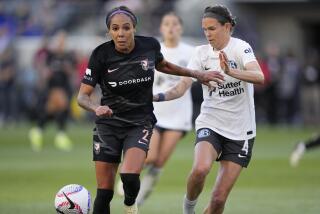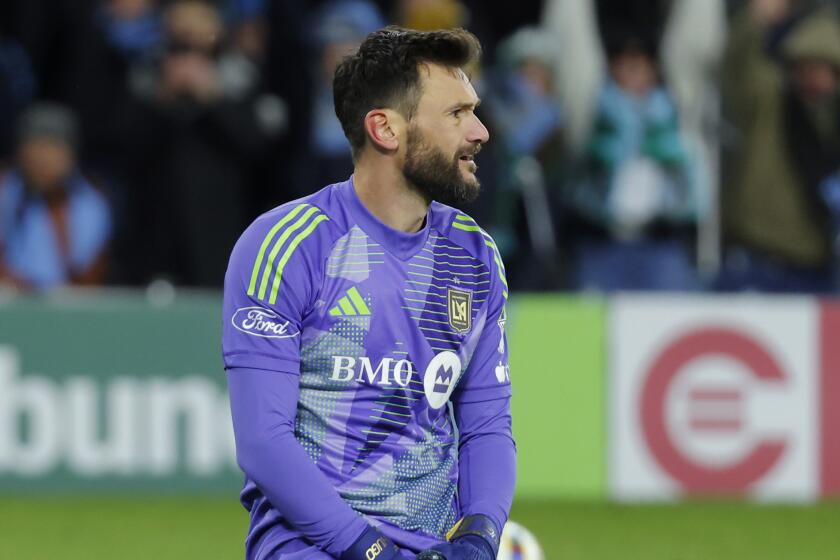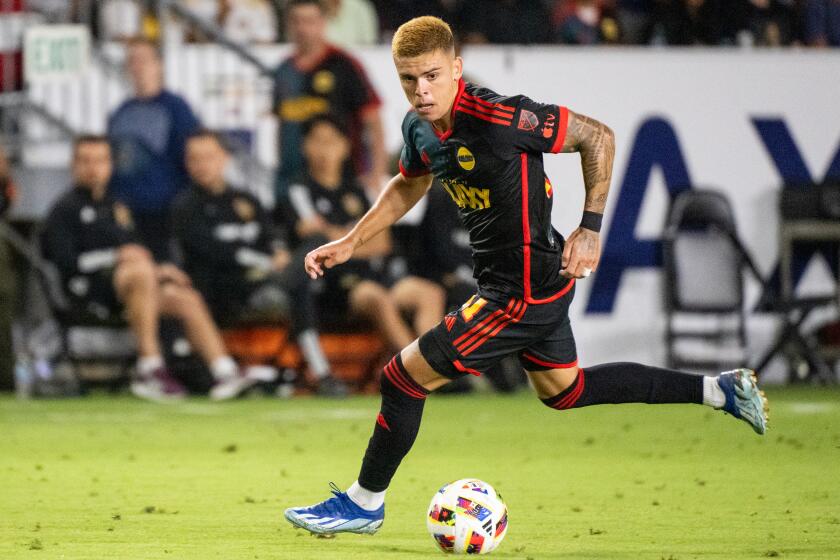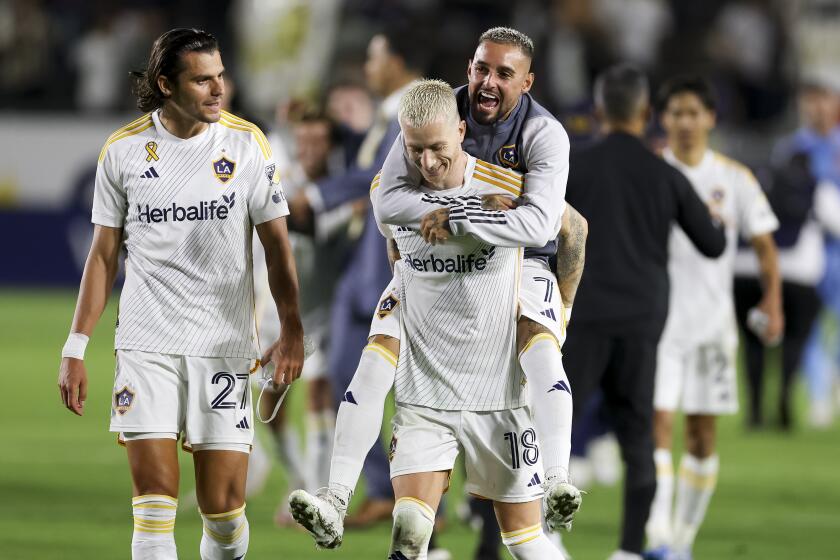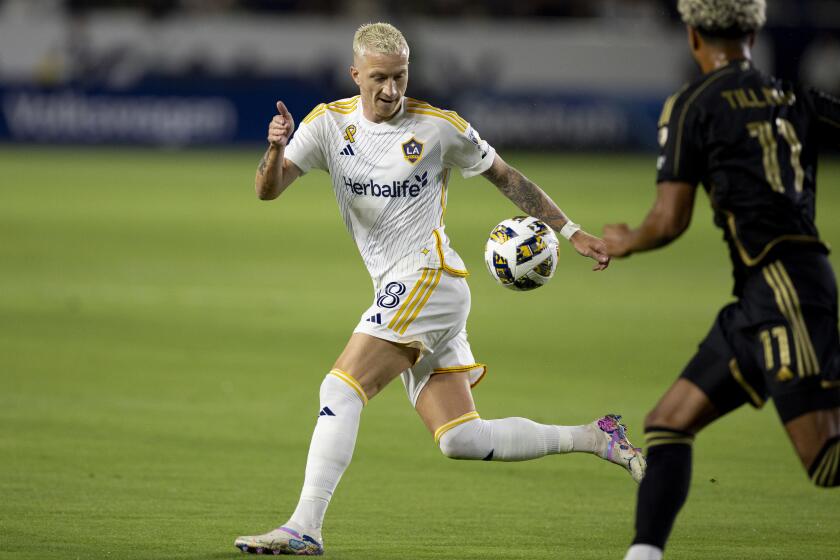Column: Pulisic facing an age-old problem with U.S. national team
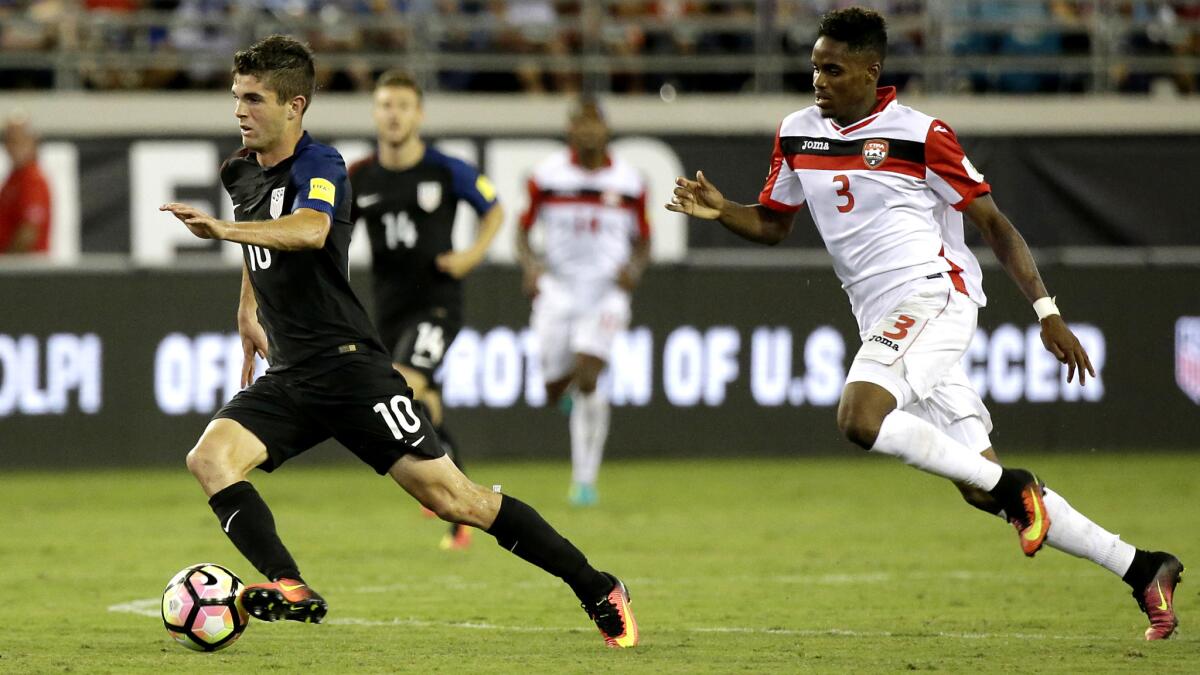
If Juan Agudelo knew as a teenager what he knows now, his soccer career might have unfolded differently.
Agudelo was 17 when he got his first international goal, making him the youngest scorer in modern U.S. national team history.
That was six years ago. Since then, Agudelo has started just seven games for the U.S.
“It comes up in my mind. But I don’t let it linger,” Agudelo says. “I say ‘OK, yeah, things could have gone a different way.’ But that’s just the way it is.”
Therein lies a lesson for Christian Pulisic, who this year beat Agudelo’s record when he became the second 17-year-old American to score an international goal, setting himself up to become the country’s next great soccer star.
Pulisic, who turned 18 in September, has three goals in two starts for the U.S. this year, numbers he could add to if he’s called up, as expected, for the final round of World Cup qualifying. Play begins Friday when the U.S. meets Mexico in Columbus, Ohio.
But fame and promise, Agudelo learned, can fade just as quickly as it appeared.
“When you’re young, you sort of don’t think about how important everything off the field is. Like staying hydrated and maintaining your body. And sleep,” said Agudelo who, at 23, has resurrected his career with the New England Revolution. “You just don’t think that’s going to affect you. That’s part of being a little bit naïve.”
Agudelo’s story isn’t the only cautionary tale Pulisic should heed. When he made his national team debut last spring, Pulisic was the fifth-youngest player in the modern era to earn a cap for the U.S. Two of the other four never played in another game; just one appeared in more than 20.
That’s one reason U.S. Coach Juergen Klinsmann, as well as Pulisic’s club coaches with Germany’s Borussia Dortmund, have held the midfielder back. Klinsmann refused to start Pulisic in last summer’s Copa America and he’s started just nine of 19 games for Dortmund this season. The German club has also greatly limited Pulisic’s media availability to keep him focused on soccer.
“In general it’s important to kind of give younger players time, and have that patience,” Klinsmann recently told reporters. “We just need to make sure it all comes at the right time.”
That go-slow approach is also favored, for multiple reasons, by Lothar Mattaus, a former Klinsmann teammate with the German national team who also made his international debut as a teenager.
“He’s a very good player. And he’s very professional,” Mattaus said of Pulisic. “[But] you need time. A young player cannot play every week on the highest level.
“Don’t give him too many games because the body maybe is not ready for the speed. Don’t give them too much pressure. They have to enjoy the game. They have to have fun.”
Matthaus, a midfielder who played in a record five World Cups and 150 international games, said after his own first call-up to the national team his attitude changed. He started celebrating his success rather than trying to build on it.
“When you stop working hard, then you lose,” he said. “You think you are a big star. You are nobody. This is only a moment. To be a big star you have to play on the highest level a long time.”
Maintaining focus on improving is easier said than done. When an 18-year-old Landon Donovan collected a goal and an assist against Mexico in his U.S. debut, it would have been easy for him to think he, too, had arrived. His friends and family refused to let that happen.
“I was fortunate because I had a group of people around me that, one, kept me grounded but two, kept me motivated and pushing,” said Donovan, arguably the greatest soccer player in U.S. history. “A lot of guys lack that. And if you don’t have that in your personal life … it’s going to be difficult.”
Teammates are also a big part of the equation. At Dortmund, 16 of Pulisic’s teammates have been called up to their respective national teams in the last seven months, among them Mario Goetze, who scored the winning goal for Germany in the 2014 World Cup final, and Raphael Guerreiro, who won a European Championship with Portugal last summer.
The U.S. team Pulisic will likely join this week figures to include three players who have made more than 80 international appearances.
Pulisic’s accomplishments are minor by comparison.
“At 17 you’re on top of the world playing for the national team. Of course, you’re going to feel good about yourself and you might not work as hard,” Donovan said. “If you have a club environment where you can’t get away with that stuff, then you can be successful.
“They all play for the national team. It keeps you motivated. It keeps you grounded.”
If Pulisic can master that while continuing to improve, Donovan believes he’ll make a big impact on the national team.
“I’m always hesitant to jump on the hype train because I want these guys to have time to be people and pros and develop,” he said. “But the one thing that made me say ‘yeah, he’s got it’ is the brain. He really seems like he understands the game in a real way.
“The sky’s the limit for him.”
Twitter: @kbaxter11

